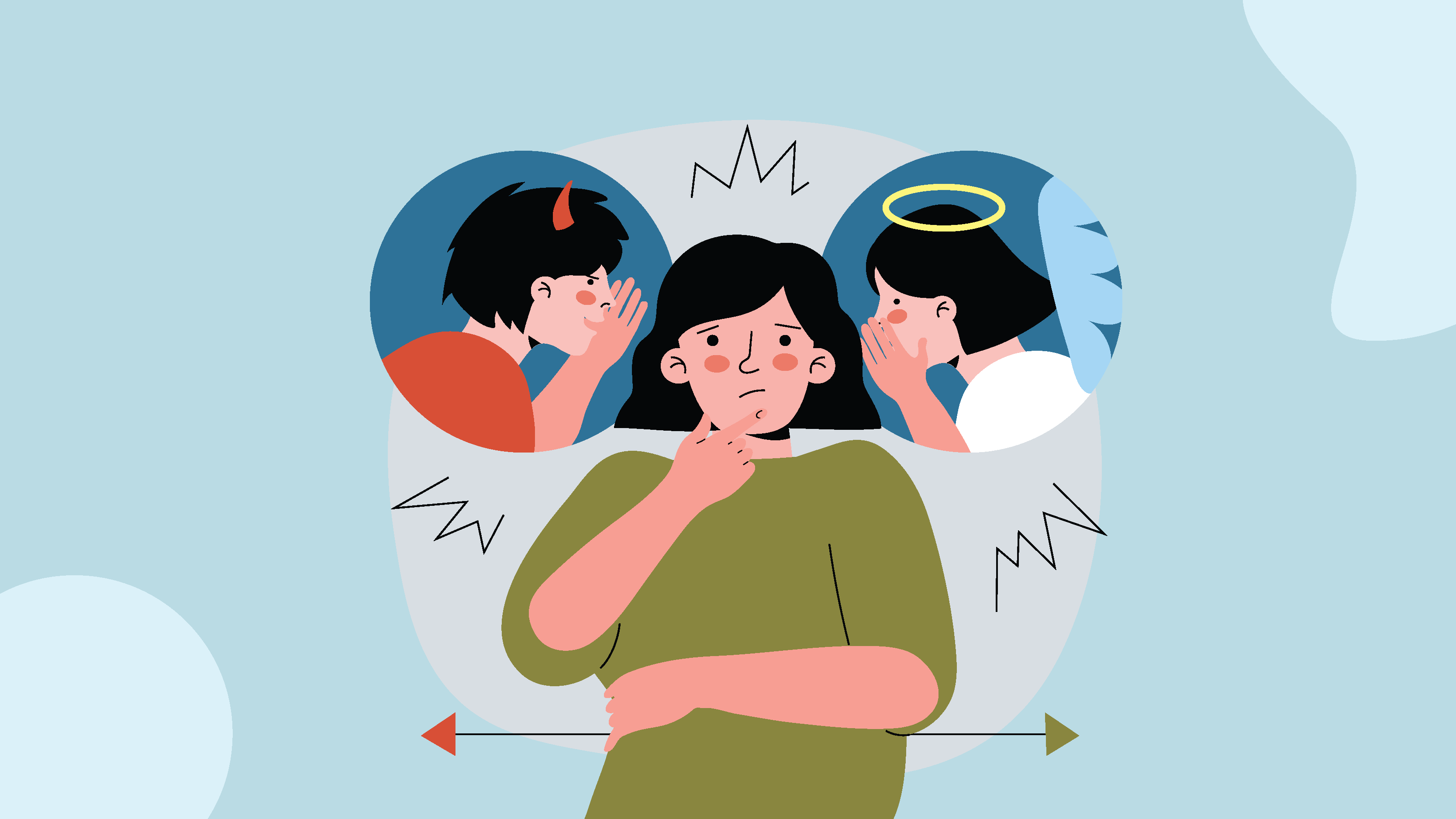
While everyone has ups and downs, those with Bipolar Disorder—formerly known as Manic Depression or manic-depressive disorder—have more extreme peaks and troughs. Serious changes in mood, energy, thought, and behavior are brought on by bipolar disease, ranging from the extremes of mania to the depths of sadness.
Read More – The Stigma Associated With Mental Illness
Bipolar illness cycles extend beyond brief moments of happiness or sadness to span days, weeks, or even months. Furthermore, unlike regular mood swings, bipolar disorder’s mood fluctuations are so severe that they can impair your performance at work or school, sabotage your relationships, and make it difficult for you to go about your everyday business.
You could rashly leave your work, run up enormous credit card debt, or wake up feeling refreshed after just two hours of sleep during a manic episode. You may be too exhausted to get out of bed during a depressed episode, and you may feel hopeless and full of self-loathing due to your debt and unemployment.
Although the exact causes of bipolar illness are unknown, it frequently seems to run in families. Bipolar disorder often manifests its first manic or depressed episode in adolescence or the early stages of adulthood. Many persons with bipolar illness go undiagnosed or are misdiagnosed due to the condition’s mild and perplexing symptoms, which causes needless suffering. It’s critical to understand the signs of bipolar illness because the condition tends to get worse without treatment. The first step is to identify the issue.
Myths And Reality Around Bipolar Illness
Myth: There is no way for someone with bipolar disease to recover or have a normal life.
Factual statement: A large number of individuals with bipolar disorder lead fulfilling personal lives, prosperous occupations, and happy families. Although having bipolar illness is difficult, you can manage your symptoms and lead a full life with therapy, constructive coping mechanisms, and a strong support network.
Myth: Mania and sadness alternate in people with bipolar illness.
Factual statement: Although some people have manic and depressive episodes in equal measure, most people experience sadness more frequently than mania. Additionally, mania might be so subtle that no one notices it. Long periods of time without symptoms can also occur in people with bipolar illness.
Myth: Only mood is impacted by bipolar illness.
Factual statement: Energy level, judgment, memory, focus, hunger, sleep habits, sex desire, and self-esteem are all impacted by bipolar disease. Furthermore, bipolar illness has been connected to drug misuse, anxiety, and medical conditions such high blood pressure, diabetes, heart disease, and migraines.
Myth: There is nothing you can do to manage bipolar disorder other than take medication.
Factual statement: Although medication is the cornerstone of bipolar illness treatment, self-help techniques and counseling are equally vital. Regular exercise, adequate sleep, a healthy diet, mood monitoring, reducing stress, and surrounding yourself with positive people can all help manage your symptoms.
Bipolar Disorder Signs And Indicators
Bipolar Disorder Spectrum
The symptoms of bipolar disease might vary greatly throughout individuals. The frequency, intensity, and pattern of the symptoms vary greatly. While some people cycle evenly between the two sorts of episodes, others are more prone to either mania or depression. While some people suffer mood swings often throughout their lives, others only do it a few times.
Mania, hypomania, sadness, and mixed episodes are the four different forms of mood episodes associated with bipolar illness. The symptoms of bipolar disorder mood episodes vary depending on the type of episode.
Signs Of Mania
Feelings of increased energy, inventiveness, and exhilaration are typical during the manic phase of bipolar illness. During a manic episode, you could talk nonstop, sleep very little, and exhibit hyperactivity. Additionally, you might believe that you are unstoppable, all-knowing, or born to be a wonderful person.
Read More – Unlocking Antioxidant Power: A Culinary Path To Well-Being And Energy
However, mania has a propensity to go out of hand even when it feels fantastic at first. During a manic episode, you could act recklessly—for example, by gambling away your funds, having improper sex, or making dumb business decisions. Additionally, you could become agitated, hostile, and provoke conflicts, snapping at anyone who don’t follow your plans, and blaming anybody who calls you out on your actions. Some even start hearing voices or developing delusions.
Mania’s Typical Telltale Signs And Symptoms Include:
- Feeling very agitated OR extraordinarily “high” and upbeat.
- Exaggerated, unrealistic notions of one’s own strength or capability.
- I’m feeling really energized and getting very little sleep.
- Talking at a pace that is too fast for others to follow.
- Ideas that race, racing from one to the next.
- Easily distracted and difficult to focus.
- Impulsivity and poor judgment.hurrying
- Acting carelessly and without regard for the repercussions.
- Hallucinations and delusions (in extreme circumstances).
Signs Of Hypomania
A milder kind of mania is called hypomania. While in a hypomanic state, you may expect to feel happy, energized, and productive, but you won’t lose consciousness and be able to go about your daily activities as usual. Others could think you’re just in an exceptionally pleasant mood. Hypomania, however, can lead to poor choices that are detrimental to your reputation, job, and relationships. Furthermore, hypomania frequently progresses to manic episodes or is followed by severe depressive disorder.
Bipolar Disorder Types
Because individual symptoms can range greatly, bipolar illness is sometimes classified into distinct kinds based on the pattern of mania and depression.
- Mania or a mixed episode in bipolar I disorder
With at least one manic episode or mixed episode, this is the typical manic-depressive version of the disorder. Bipolar I Disorder often entails at least one depressive episode, however this is not always the case.
- Depression and hypomania in bipolar II disorder
Full-blown manic episodes are not experienced by those with bipolar II illness. Rather, hypomanic and depressive episodes are the hallmarks of the condition.
- Cyclothymia (moderate sadness and hypomania)
Bipolar disorder that is less severe and characterized by cyclical mood fluctuations is called cyclothymia. The symptoms are not as bad as those of full-blown mania, though.
Reasons And Initiators
There is no one cause of bipolar disorder. Though not everyone with an inherent sensitivity goes on to acquire bipolar disorder, it seems that some people are genetically predisposed to the condition, suggesting that genes are not the primary reason. Bipolar illness sufferers’ brains exhibit physical alterations, according to some brain imaging studies. Additional study indicates that there may be aberrant thyroid function, neurotransmitter abnormalities, disruptions in the circadian rhythm, and elevated levels of the stress hormone cortisol.
It is also thought that psychological and environmental external variables have a role in the onset of bipolar illness. We refer to these outside variables as triggers. Triggers have the power to worsen pre-existing symptoms or start new bouts of mania or depression. Nonetheless, a lot of bipolar illness episodes happen without a clear cause.
- Tension – A genetically predisposed person may have bipolar illness in response to stressful life experiences. These occasions usually entail abrupt or dramatic changes, either positive or negative. Examples of these are getting married, moving away for college, losing a loved one, being fired, or getting married.
- Drug misuse – Substance misuse can exacerbate the illness or trigger an episode, but it does not cause bipolar disorder. Amphetamines, cocaine, and ecstasy are examples of drugs that can cause mania, whereas alcohol and tranquilizers can cause depression.
- Drugs – Mania can be brought on by several medicines, most notably antidepressants. Medications such as over-the-counter cold remedies, appetite suppressants, caffeine, corticosteroids, and thyroid medication can also induce manic episodes.
- Variations in Seasons – Mania and melancholy episodes frequently have a seasonal rhythm. Summer is when manic episodes are more prevalent, whereas fall, winter, and spring are when depressed episodes are more likely.
- Lack of sleep – Mania episodes can be brought on by sleep deprivation, even in little doses like missing a few hours of sleep.
Treatment
Don’t delay to get assistance if you observe bipolar illness symptoms in someone you know or in yourself. Ignoring the issue is unlikely to make it go away; on the contrary, it will most likely become worse. Untreated bipolar disease can cause issues with your job, relationships, and health, among other things. However, bipolar illness is quite curable, so identifying the issue and initiating therapy as soon as feasible might help avert these consequences.
If you’re hesitant to get help because you enjoy your manic state, keep in mind that the energy and bliss are not free. Both you and others around you may suffer as a result of manic or hypomanic episodes that turn harmful.
Basics of treatment
Treatment for bipolar illness has to be ongoing. Treatment for bipolar disorder should be continued even when symptoms improve because it’s a chronic, recurrent condition. The majority of bipolar illness sufferers require medication to stop future episodes and maintain symptom-free living.
Treatment entails more than just taking medicine. Typically, medication is insufficient to completely manage bipolar illness symptoms. The best way to manage bipolar disorder is to combine medication, counseling, lifestyle modifications, and social support.
Read More – Post-Traumatic Stress Disorder



